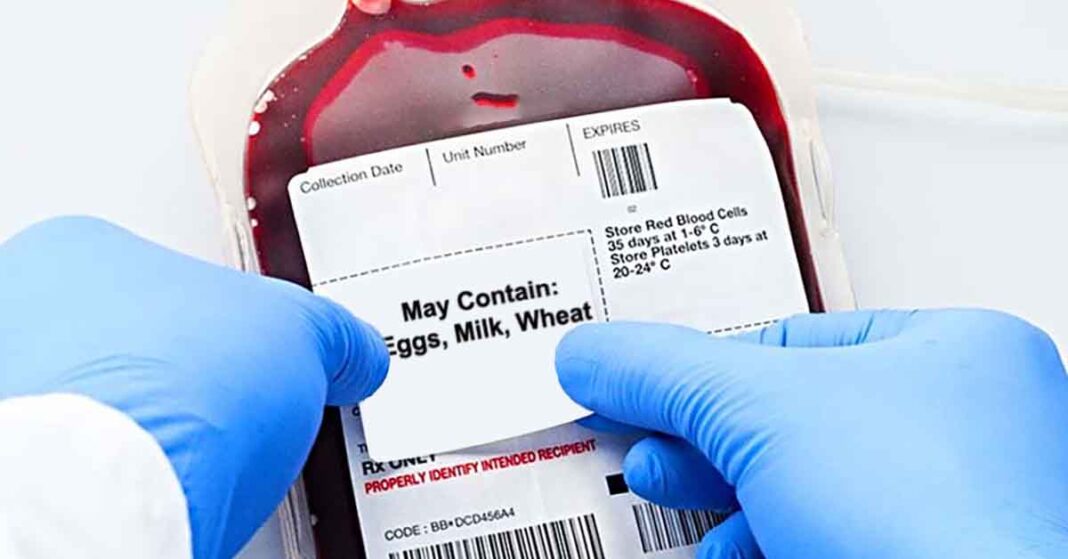There’s no doubt that blood transfusions save lives, not only for people undergoing surgery but also for those who have suffered serious injuries and diseases, including leukemia and kidney disease. In fact, blood transfusions are one of the most common procedures in hospitals.
Up to 1% of transfusions cause allergic reactions in recipients, known as Allergic Transfusion Reactions (ATRs). Such reactions may be acute or delayed and have been observed up to 30 days after transfusion. These reactions rarely prove fatal, with the incidence of fatalities from blood transfusions ranging from 1 in 600,000 to 2.3 million.
Although scientists believe ATRs are caused by immunoglobulin E (IgE)-mediated type 1 allergy, the responsible allergens are not always known.
Researchers from Shinshu University Hospital and Nagano Children’s Hospital in Japan set out to find more answers and published their latest study in the journal Allergy in January.
Dr Ryu Yanagisawa, who led the study, explained:
In our previous study, we found that pediatric patients with food allergies were characteristically more prone to ATRs. Considering that food allergies are also more prevalent in children, we decided to investigate whether the food the donor ate before giving blood could be associated with the development of ATRs in children with food allergies.
The researchers collected blood samples from over 100 pediatric patients diagnosed with food allergies toward eggs, wheat, or milk between May 2022 and December 2023 as well as blood samples from wto healthy donors before and after substantial ingestion of these food products and extracted the serum.
Shortly after collecting blood from each allergic patient, the researchers conducted basophil activation tests (BATs) by exposing the sample to the corresponding sera. As the name implies, these tests assess the activation of basophils, a particular type of white blood cell that is strongly involved in allergic reactions.
in patients with egg allergy, BAT levels were significantly higher when the blood was exposed to the serum of donors who had ingested eggs. Moreover, serum obtained from blood donor samples collected four hours after egg ingestion resulted in markedly higher BAT levels than those collected two hours after egg ingestion. In contrast, the results for milk and wheat were more varied, with BAT levels only being elevated after exposure to the serum of one of the two donors.
To gain deeper insights and lend more weight to the results, the researchers decided to run BAT tests with sera from sixteen additional donors.
Dr Yanagisawa stated:
Although some differences were observed among donors, blood samples obtained after egg ingestion generally activated basophils in cases of egg allergy with high egg white-specific IgE levels. Similarly, elevated BAT levels in patients with milk and wheat allergies were also associated with allergen-specific IgE levels.
Overall, the evidence obtained through this study strongly suggests that ATRs could be triggered by the food consumed by donors prior to a blood donation. Although further analyses and experiments will be needed to confirm this with more certainty, these efforts constitute a necessary first step towards elucidating the mechanisms underlying ATRs.
Said Dr Yanagisawa:
In [the] future, it could be possible to predict in advance who is likely to suffer from an ATR. Given enough time, preventive measures and countermeasures to ATRs could be developed, leading to safer blood transfusion.





